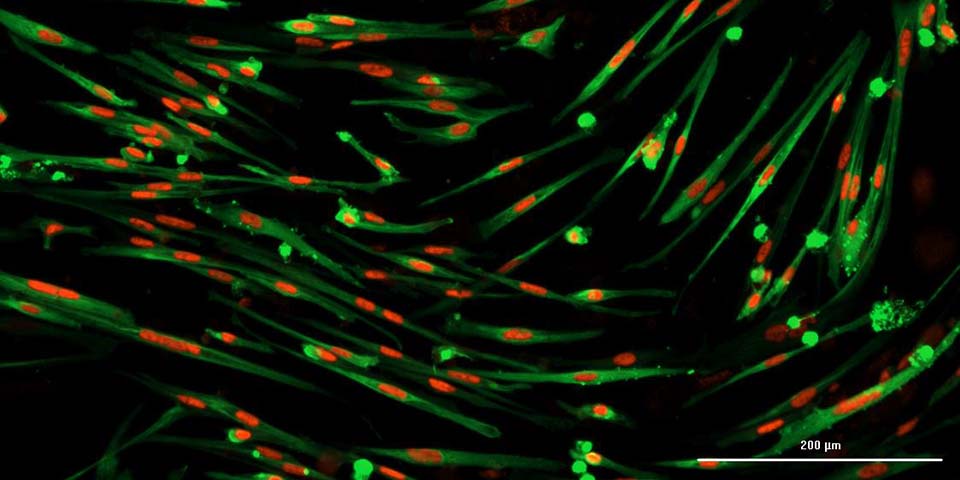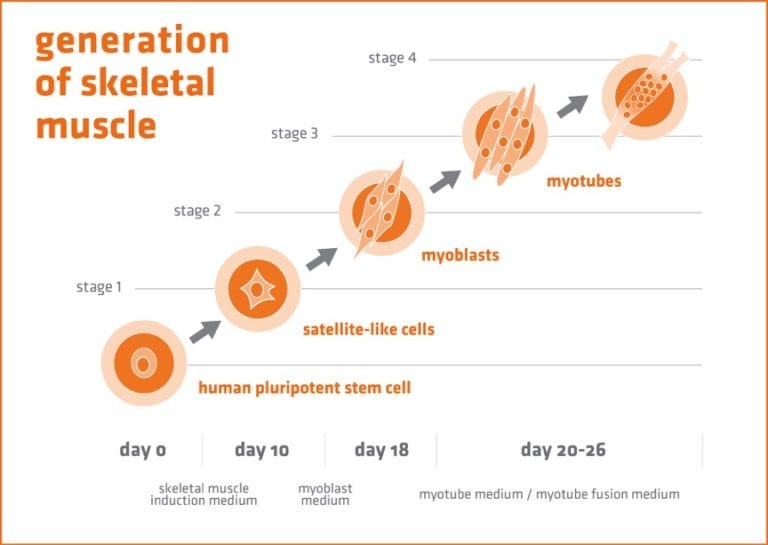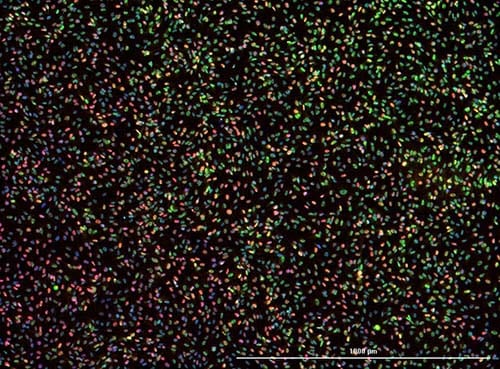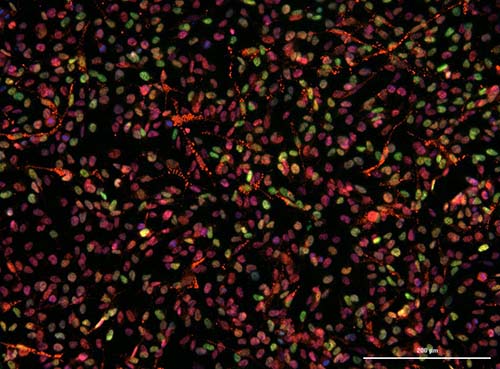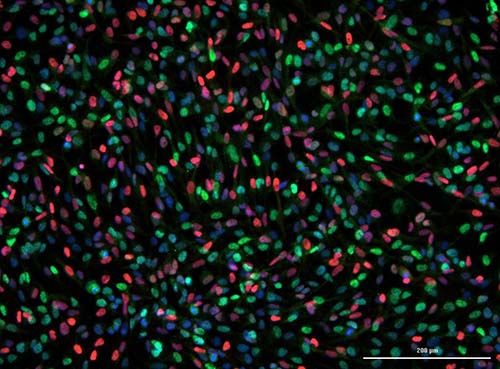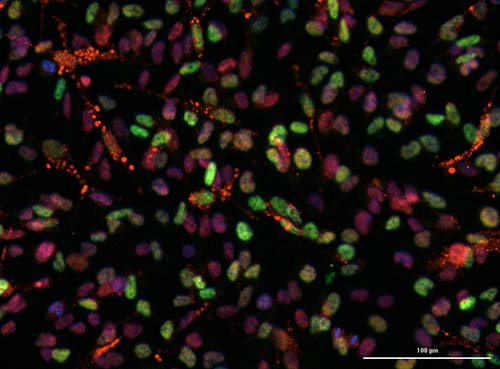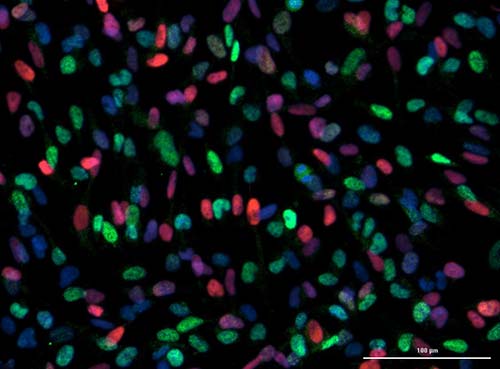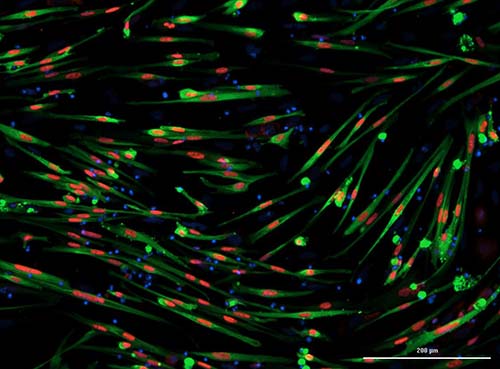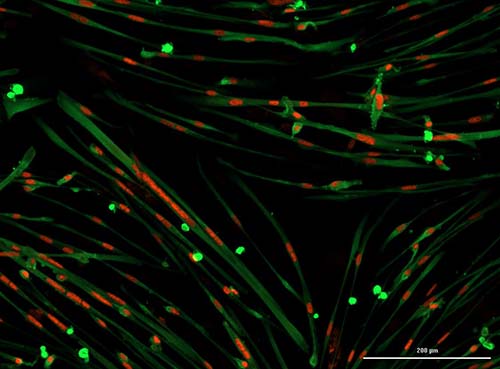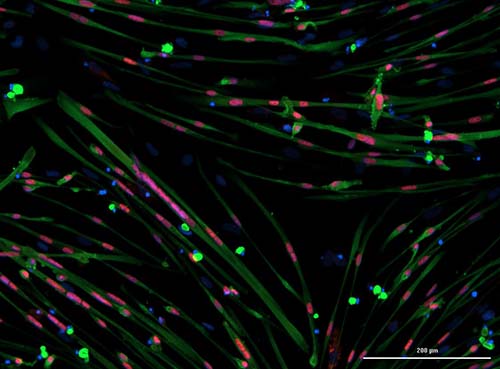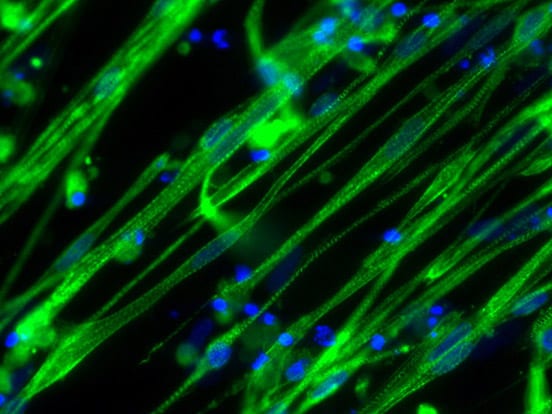Until recently methods of studying muscular disease and potential therapies were dependent on invasive muscle biopsies to produce limited batches of primary cells. Use of primary cells presents challenges, not only in the collection process but also related to inconsistencies in cell growth, behaviour and life span, making it difficult to generate reliable experimental models.
Using our innovative Skeletal Muscle Differentiation kit allows researchers to generate muscle from human pluripotent stem cells in three easy steps, via satellite-like or progenitor cells and myoblasts that then fuse to multinucleated myotubes in the third step.
The myotube differentiation kit from AMSBIO is simple to use and it has produced consistent results every time.
Jason D Doles, Ph.D, an assistant Professor of Biochemistry and Molecular Biology and head of the Doles Lab in Rochester, Minnesota. Dr Doles and the research team in his Skeletal Muscle Wasting and Progenitor Cell Biology group are currently studying muscle regeneration, wasting disorders and stem cell activation using diverse experimental model systems and cutting-edge cell and molecular biology tools and technologies.
Tested on a wide range of human embryonic and induced pluripotent stem cell lines the new kit follows a simple 3-step process of media changes and cell passaging. Eliminating the need for cell sorting or transfection of myogenic transcription factors, the Skeletal Muscle Differentiation kit protocol generates a highly pure population of approximately 70 per cent skeletal muscle myotubes in a reproducible fashion.


